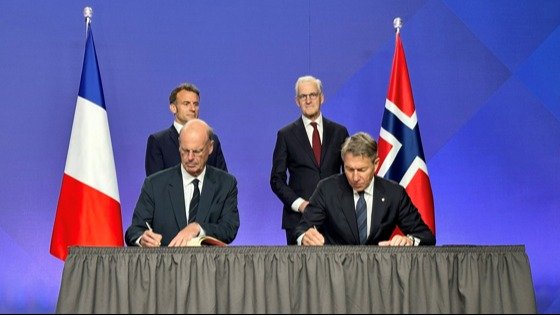Breaking New Ground: Norway and France Collaborate on CO2 Transport and Storage Agreement
The recent signing of an agreement between the Ministers of Norway and France has paved the way for cross-border transport and storage of CO2, marking a significant milestone in European climate cooperation.
Under the terms of the administrative arrangement, CO2 emissions from industrial sources in France, including hubs in Le Havre, Dunkirk, and Saint-Nazaire, will be transported to sites on the Norwegian Continental Shelf for permanent storage beneath the North Sea seabed.
Norway’s Minister of Energy, Terje Aasland, hailed the agreement as a breakthrough in finding practical solutions for reducing emissions and transitioning to a low-carbon society. His French counterpart, Minister of Economy and Finance Éric Lombard, echoed the sentiment, emphasizing the importance of collaboration in tackling climate change.
Commitment to Environmental Accountability
In addition to facilitating CO2 transport and storage, the agreement emphasizes the importance of consistent reporting of greenhouse gas emissions related to CCS operations. Both countries have committed to reporting their inventories on cross-border CCS operations and CO2 emissions as part of the deal, ensuring transparency and accountability.
Expanding CO2 Storage Capabilities
Norway’s Ministry of Energy has been proactive in promoting CO2 storage on the NCS, having awarded multiple exploration licenses for this purpose. Equinor, a key player in the Norwegian energy sector, recently secured an exploration license for CO2 storage in the North Sea, further expanding the country’s capabilities in carbon capture and storage.
Equinor is also part of the Northern Lights joint venture, along with Shell and TotalEnergies, which received approval to enhance their CO2 transport and storage development project. This project aims to establish a common European market for CCS, demonstrating a commitment to sustainable industry practices and emissions reduction.

